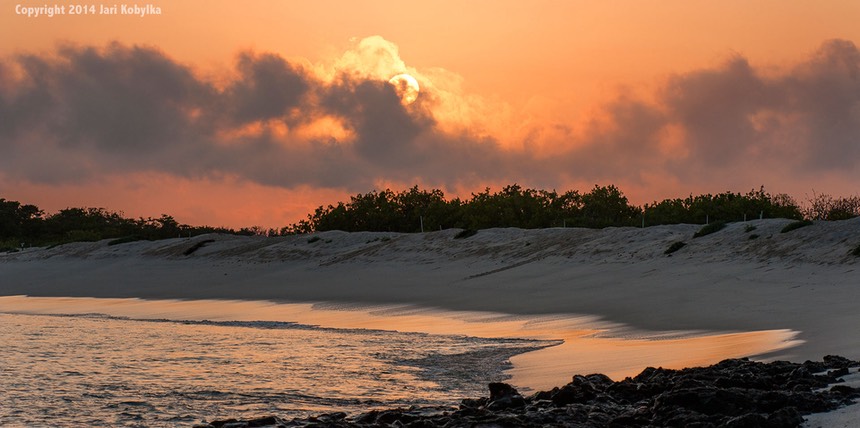
Another long cruise overnight brought us to the Northern side of Santa Cruz to Playa Las Bachas. Again we were able to get right onto shore at first light.
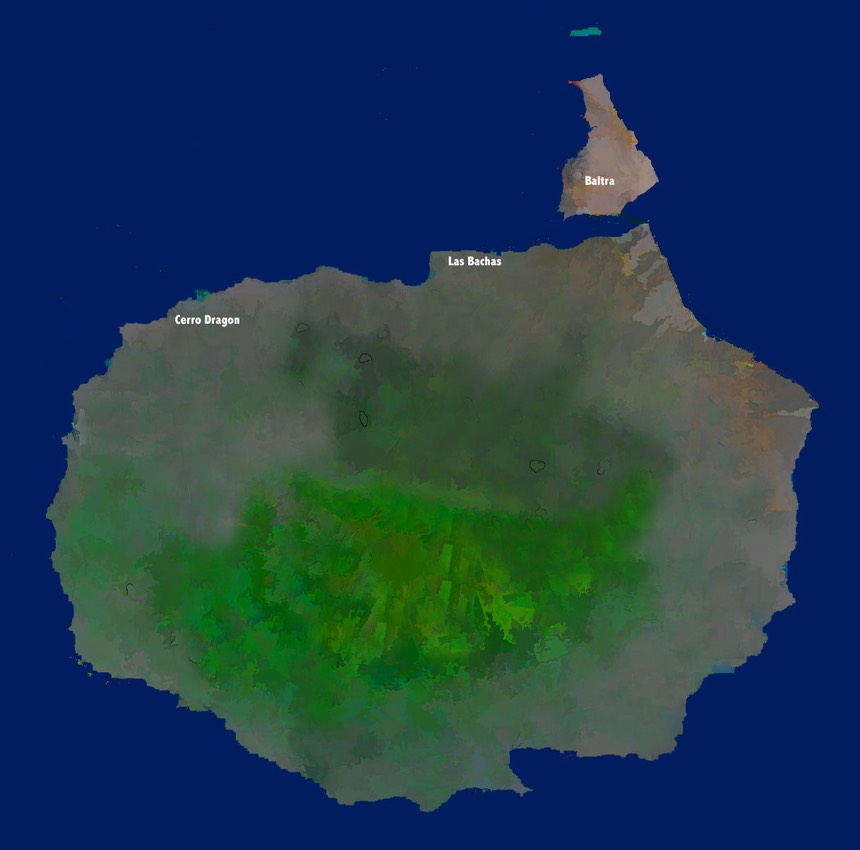
The beach here was in pristine form when we hit it, and we could clearly see turtle tracks up to the top of the shore dunes, where the females dig holes and lay their eggs. We were hoping that we might find a tardy turtle who didn’t get her chore done deep in the night, but unfortunately we weren’t lucky.
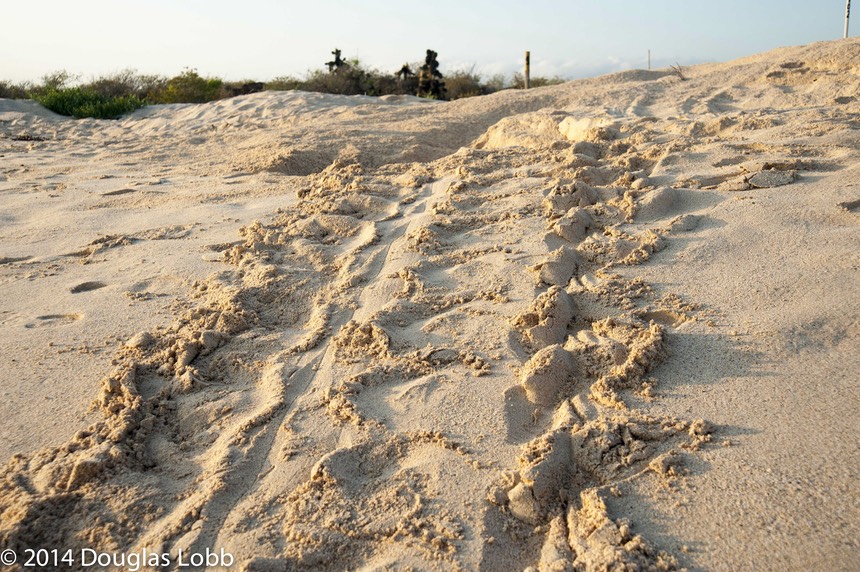
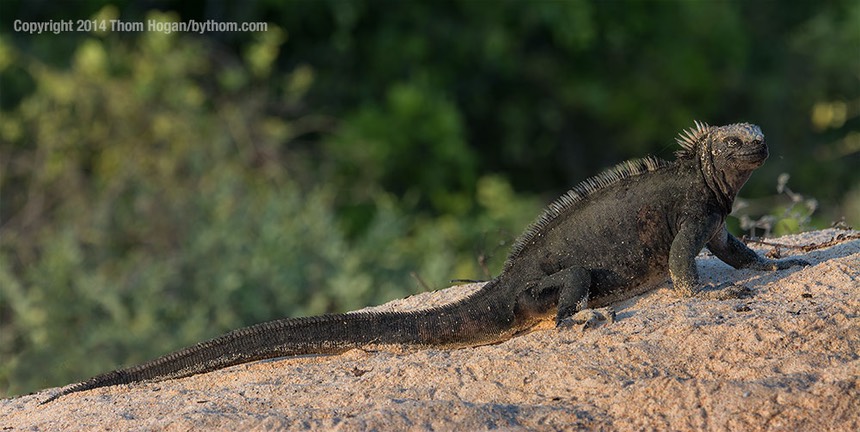
Still, we had an enjoyable morning walk at Las Bachas, visiting two lagoons, each with a single flamingo and perhaps a half dozen marine iguanas, some doing their glamour shot poses for us (above). Plus we found a mother Lava Gull and her two chicks nicely camouflaged in the rocks. Indeed, so well camouflaged that even if you pointed the spot out to someone, it took them awhile to actually see the chicks. Generally, most people didn’t see them until they moved.
That’s probably a good thing, as Lava Gulls are now endangered and less than a thousand of the species remain here on the island.
As usual, the shoreline provided plenty of interest today:


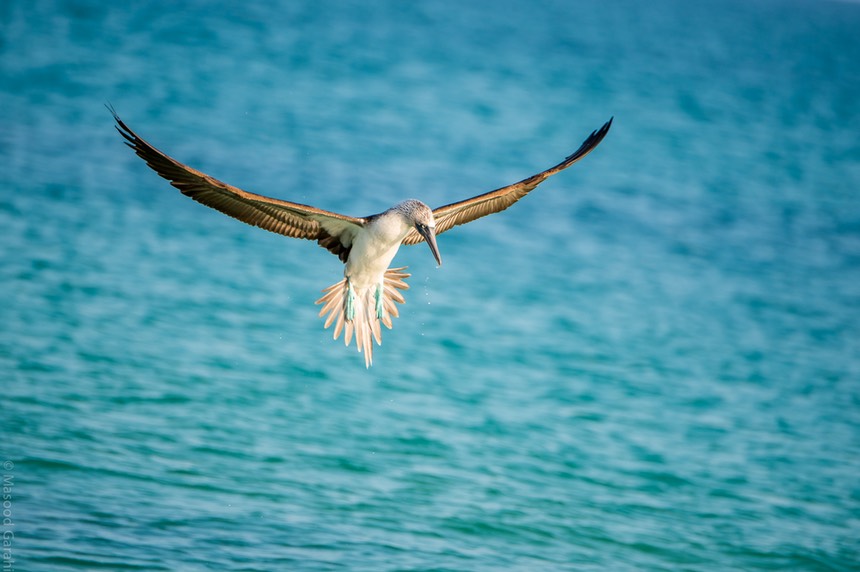

After our morning walk, it was on to Baltra, where we stopped to pick up fuel for the boat. Surprisingly, very few boats were in the harbor, which means that we’re probably in a little gap of boats (most National Geographic cruises start a day earlier than we did). So while the Letty (which we’re on), Flamingo I, and Eric owned by Ecoventura all started off together, we’ve seen very few other boats so far. I hope that is going to remain mostly the case, but we haven’t hit any of the most popular sites yet. This week we’re on what I’d call the “far reach” tour, as most our visitation sites in this first part of the workshop are well away from the two airports and the primary circuit, and especially far from the Letty’s home port on San Cristobal.
But today, we’re never more than an hour-and-a-half boat ride from the bigger airport, so I’m wondering where the other boats are. Perhaps we got lucky and got two visitation sites that the others didn’t.
After lunch and the refuel, we moved the boat to Cerro Dragon and some went for a mostly uneventful afternoon snorkel (don’t worry, they’ll get eventful). After the snorkel, we disembarked for the land to see:

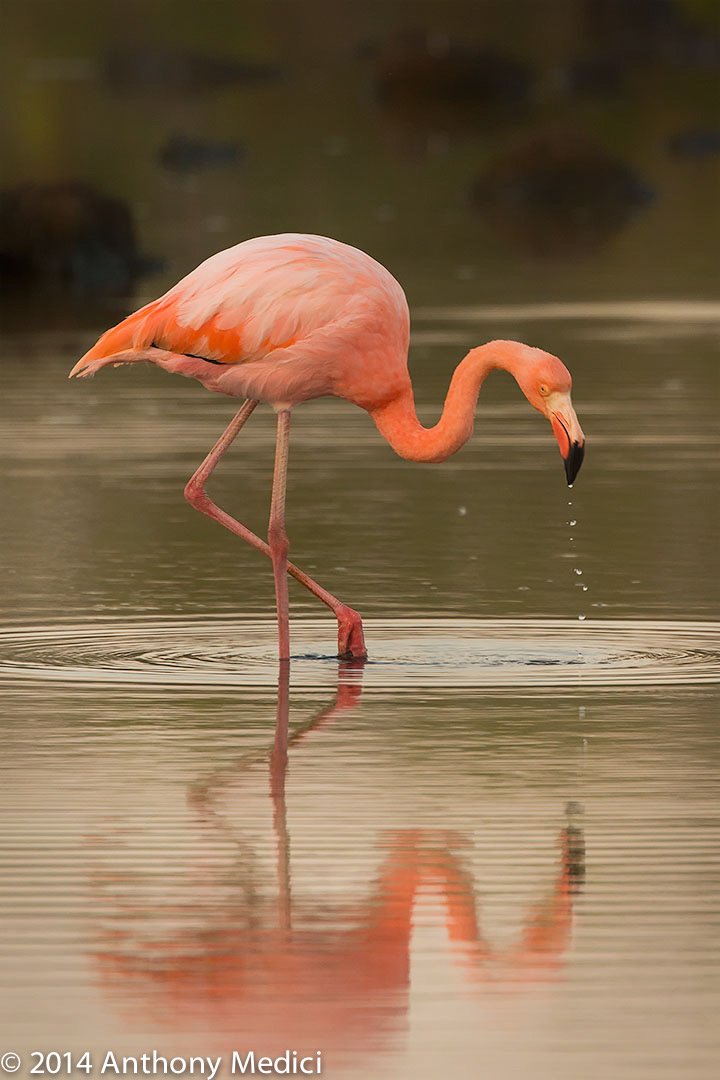
Yes, another lone flamingo. Guess they’re all ignoring each other right now and setting up in separate ponds. David did a great job of catching the stray feather in his shot. Tony’s got great leg position and the beak drips timed nicely. So one thing you might realize that I was talking about during the workshop was “timing.” We’re looking for something besides that glamour pose I started today’s post with: we want to see animal behavior, and we want to capture just the right moment when we can show something besides just a basic portrait of the animal.
Cerro Dragon has a bit of history. It’s one of the few places on the big island of Santa Cruz that has native land iguanas present. The problem is that there were feral dogs in the area, threatening the lizard population. The park service moved the iguanas to a “penned” area elsewhere on the island, even moving soil from the Cerro Dragon area so that the iguana nests could be in their natural environment. The dogs have since been removed, and in 1990 the park began returning iguanas back to Cerro Dragon. The animals are still a bit skittish, though, and the park service has to continue monitoring feral animals in the area, particularly cats and donkeys.
The good news, of course, is that iguanas are one of the two very successful breeding and repopulation successes Charles Darwin Station and its researchers have accomplished over the years. Cerro Dragon had no iguanas when I first visited the islands. Now it does again.
You’re probably a bit surprised at the photos you’re seeing so far: not exactly what you expected, right? Part of that is our itinerary, which is very bird oriented up front. Don’t worry, you’ll see more and more diversity, just as we did. In the meantime, it’s worth looking at a few of the other things we’re encountering:
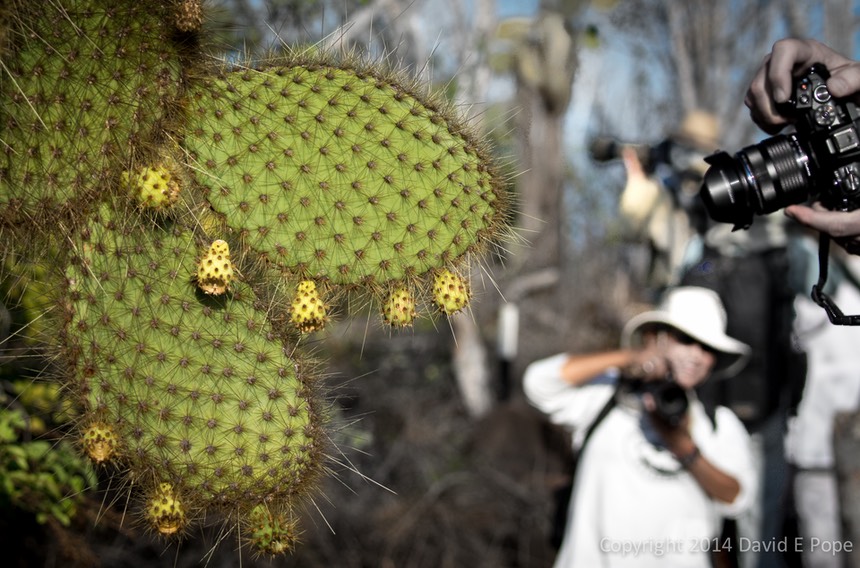

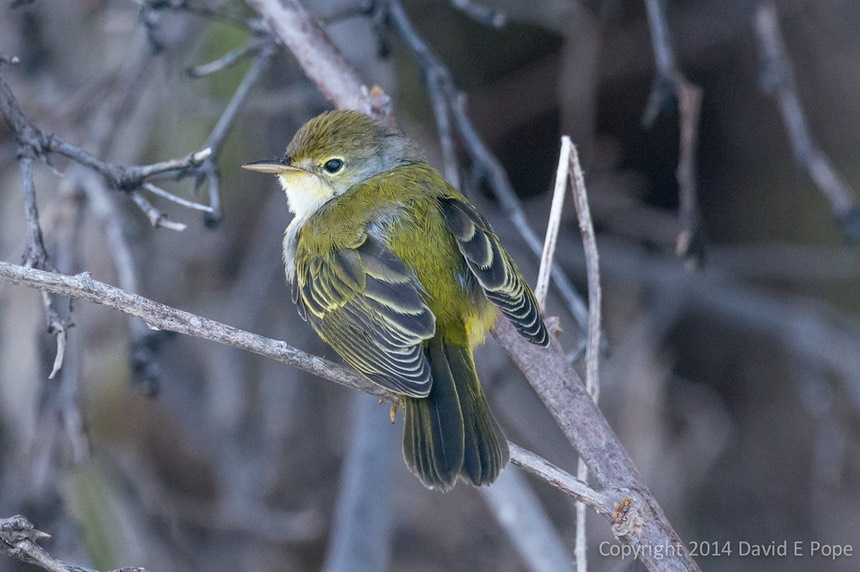
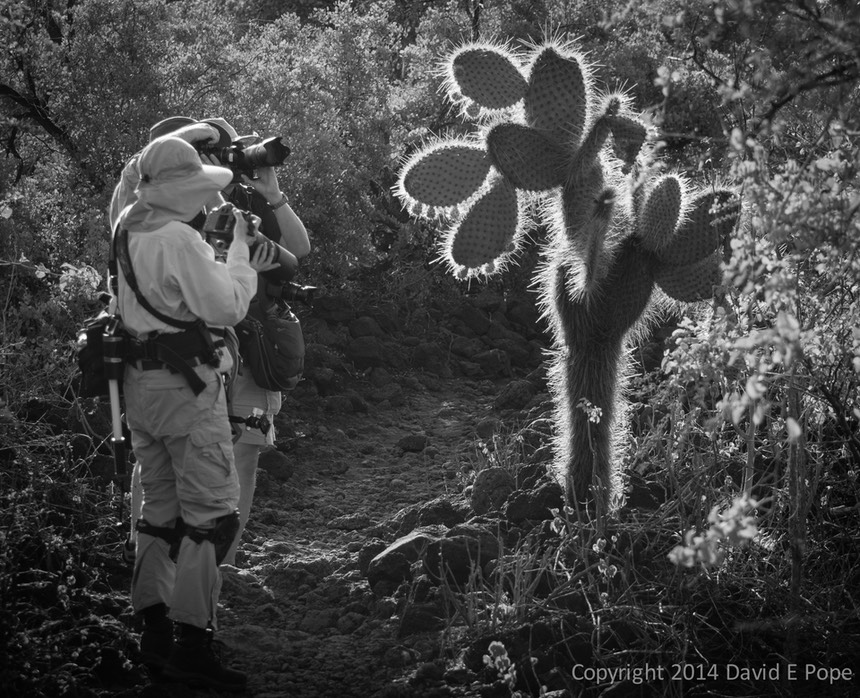
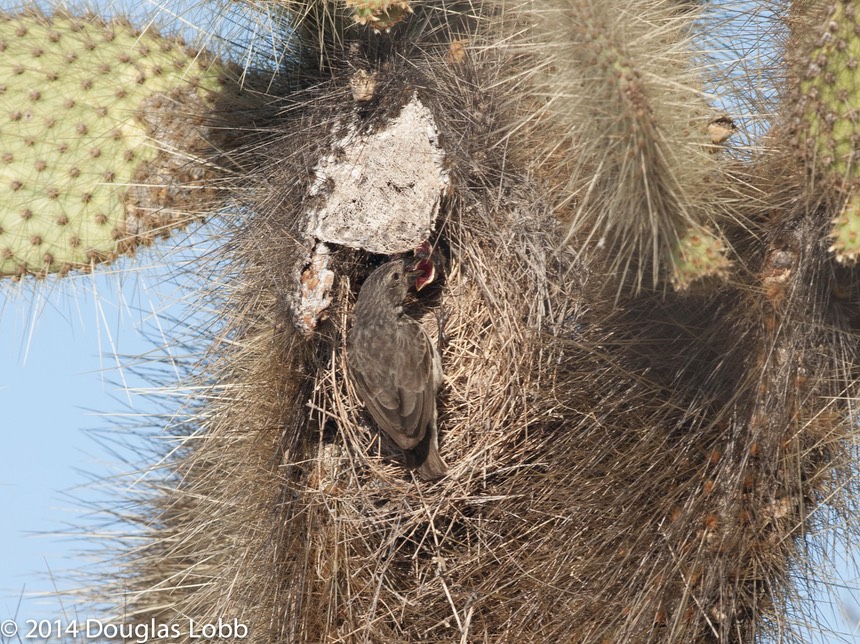
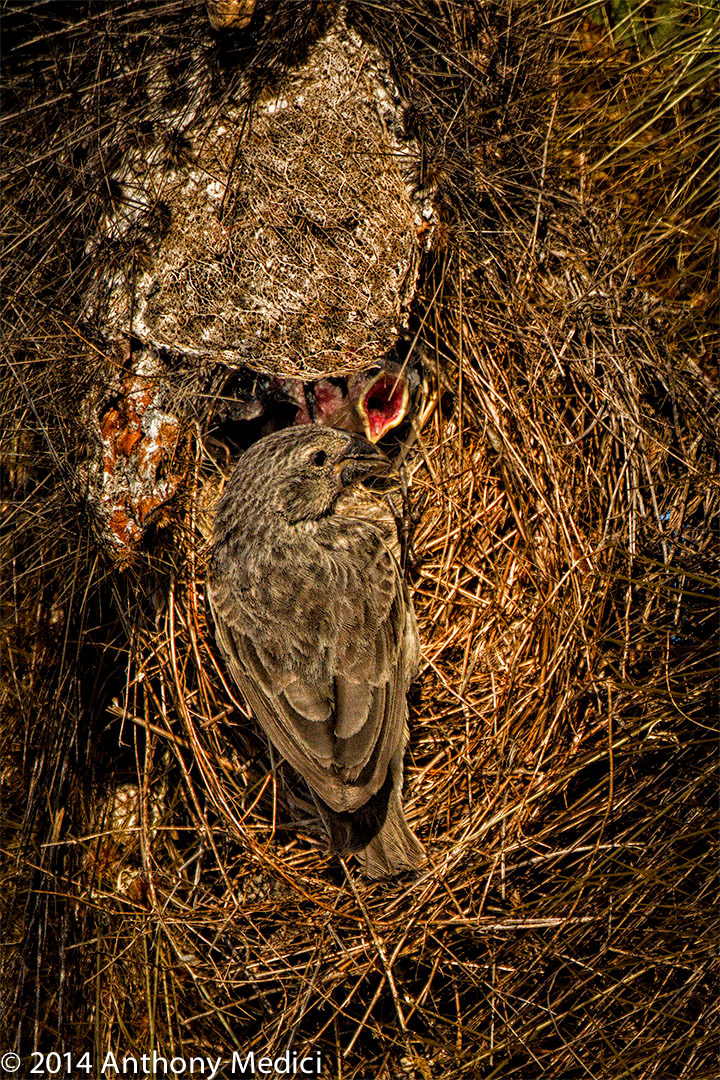
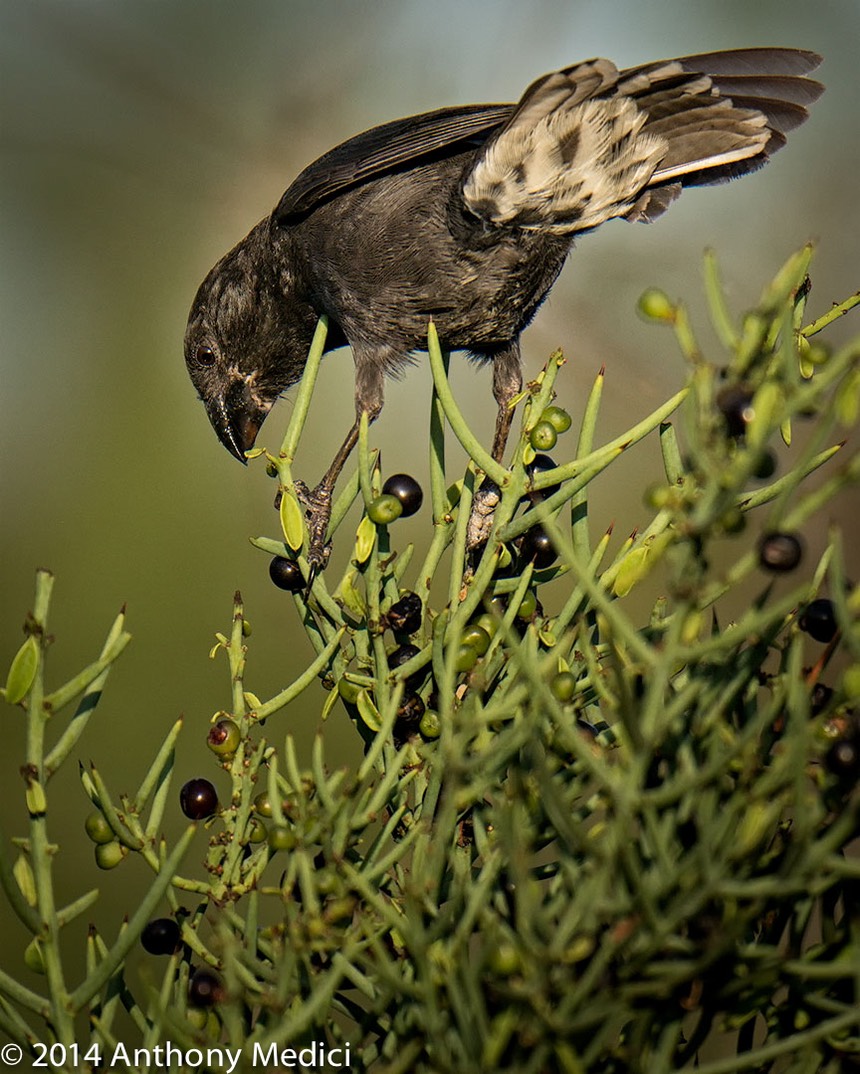
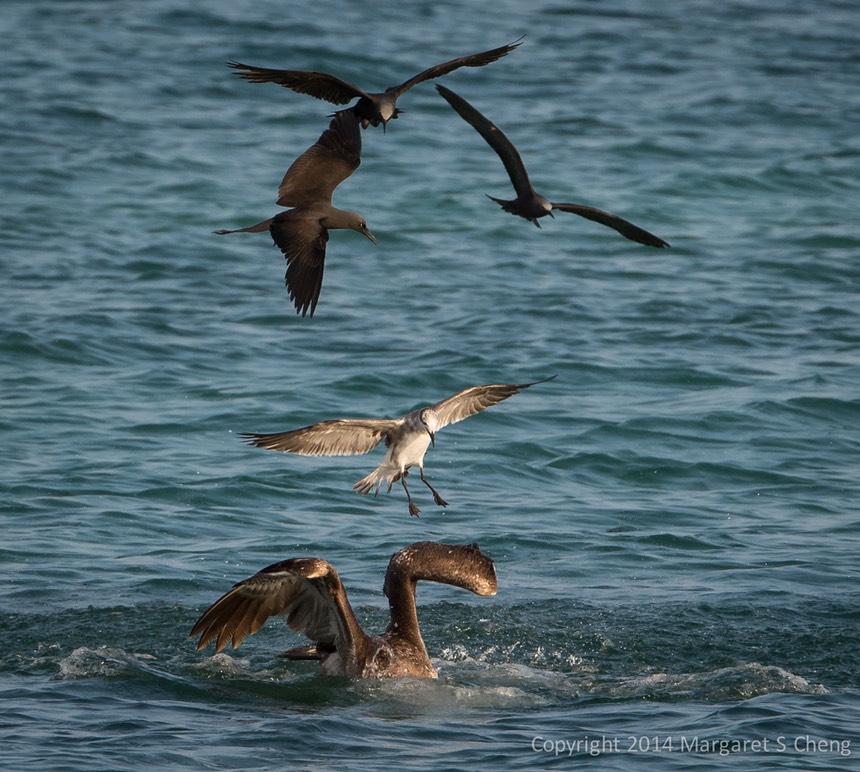
We originally decided start image reviews tonight, but that was cut short by an announcement from the Captain that there had been a 8.2 earthquake in Chile and the Islands were now under a tsunami warning. While the ocean is very deep outside the islands, the inner area is a relatively shallow plate, and that’s where tsunamis raise their ugly heads and cause destructive. Unfortunately, we’re right in the middle of that shallow area at the moment. That meant that we are going to rush to deep water (500 foot or higher) instead of our intended route and are going to get bounced around a bit in more open ocean. The Equadorian Navy asked that all boats pull out of port and get to 200 feet deep water, so we’re playing it even more safe than suggested. Still everyone went to bed wondering what was actually going to happen that night. Would we get a “big wave” or not?
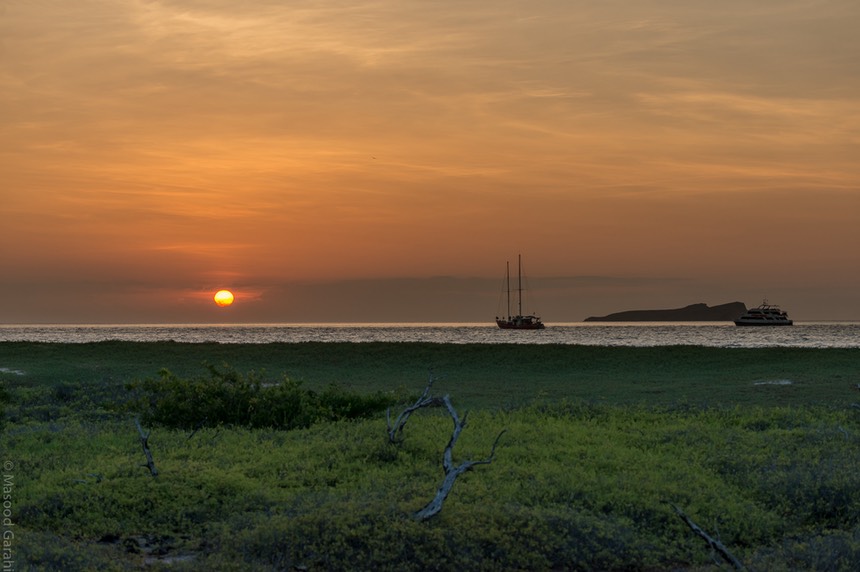
Landings: Las Bachos and Cerro Dragon are both wet landings, with fairly quick drop offs into deep water; Cerro Dragon is a rocky beach
Snorkeling: done off the beach or panga
Major New Sightings: flamingo, new finches, baby finches
